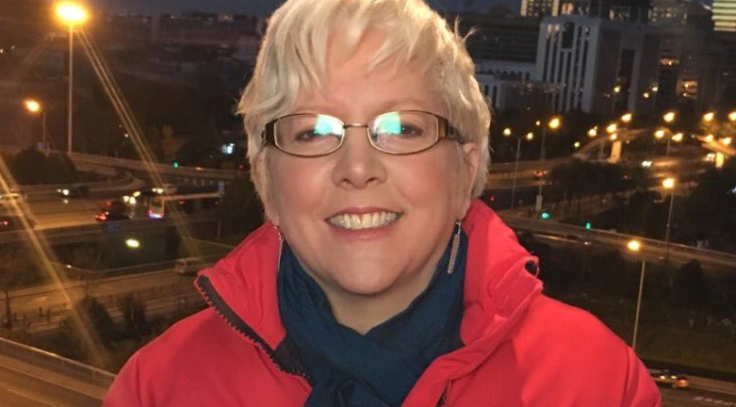Top BBC journalist quits post accusing corporation of valuing women's work much less than men's
Carrie Gracie quit her post as China editor and reignites a gender pay row plaguing the BBC.
A top BBC journalist has quit her post as China editor due to what she describes as the corporation's "secretive and illegal pay culture".
It reignites the gender row plaguing the corporation after it was revealed last year that many of its top-earning men were being paid much more than women for doing the same job.
Carrie Gracie penned a letter stating she is being paid 33% less than male international editors and that up to 200 women have made complaints since the BBC was forced to disclose the pay details of those earning more than £150,000 in July.
She said that since she took up the post in 2013, the corporation had four international editors, two men and two women.
However, she found out that the men earned at least 50% more than the two women, despite the Equality Act 2010 stating that men and women doing equal work must receive equal pay.
"Despite the BBC's public insistence that my appointment demonstrated its commitment to gender equality, and despite my own insistence that equality was a condition of taking up the post, my managers had yet again judged that women's work was worth much less than men's," Gracie said in her letter obtained by BuzzFeed.
One of BBC's top talents, bilingual Carrie Gracie, quits as China Editor over equal pay - she gets a third less than male international correspondents https://t.co/RhMdxJ1AFZ She won't be the last. She's staying on news channel if she gets equal pay.
— Paul Lewis (@paullewismoney) January 7, 2018
Brilliant letter by @BBCCarrie & a tragedy for the @BBC to lose such a talented China Editor #equalpay https://t.co/m4GQRq9e1n
— Cathy Newman (@cathynewman) January 7, 2018
It seems the BBC does not value @BBCCarrie - its fluent Chinese speaking China Editor, a renowned authority as well as a great journalist - bcs it won’t pay her the same as a man. https://t.co/3v94InDcQU
— Lindsey Hilsum (@lindseyhilsum) January 7, 2018
This is great by Carrie Gracie and sums up the expenses scandal perfectly https://t.co/4gyGFB9kM6
— Jane Merrick (@janemerrick23) January 7, 2018
Her letter was addressed to BBC licence fee-payers ahead of her shift as a co-host on Radio 4's Today programme on Monday (8 January). She said she intended to remain in her role in the BBC News Channel newsroom.
The list published in July sparked a debate and raised questions over why the top-earning women were being paid so much less than male talent. Only 34 out of the 96 on the list earning earning more than 150k, were women, most of whom were in lower salary bands. The highest paid women was Claudia Winkleman, but her £450k salary was five times less than the highest paid man, Chris Evans.

In a statement, the BBC said: "Fairness in pay is vital. A significant number of organisations have now published their gender pay figures showing that we are performing considerably better than many and are well below the national average.
"Alongside that, we have already conducted a independent judge led audit of pay for rank and file staff which showed 'no systemic discrimination against women.' A separate report for on air staff will be published in the not too distant future."





















